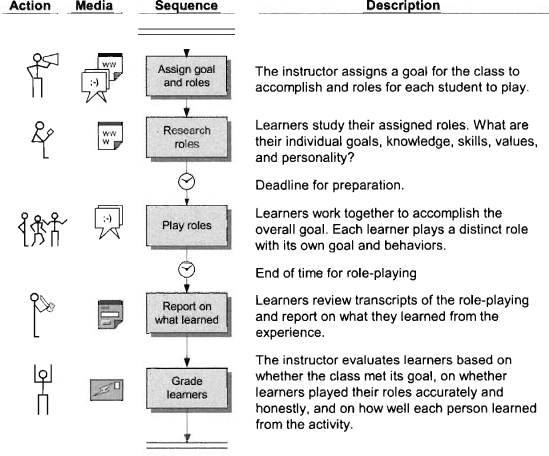6.11. Role-playing scenario
Children learn much adult behavior by playing at being an adult. Likewise, adults can learn much by playing the role of someone else.
In a role-playing scenario, the instructor states a goal and assigns learners roles in achieving that goal. Learners research their roles. They then collaborate via chat, conferencing, discussion, or multi-user domains to play out their roles to achieve the goal.
6.11.1. When to use role-playing scenarios
Role-playing is a valuable way to teach subtle, interpersonal skills and to reveal the hidden complexity of many human endeavors. Here are some common uses of role-playing activities:
Force someone to view events from a different perspective. Give an environmental activist the role of a real-estate developer.
Allow someone to experience events online that they would not experience in real life. For example, let a man experience sexual harassment as a woman.
Demonstrate the many perspectives necessary for a complex undertaking. Have a management team guide a project from initial idea to successful product.
Teach interpersonal skills. Hold a committee meeting to find an effective compromise among competing ideas, groups, and individuals.
6.11.2. How role-playing scenarios work

6.11.3. Example of a role-playing scenario
In the following example, participants simulate the meeting of the town Architectural Review Committee ...
Get Designing Web-Based Training: How to Teach Anyone Anything Anywhere Anytime now with the O’Reilly learning platform.
O’Reilly members experience books, live events, courses curated by job role, and more from O’Reilly and nearly 200 top publishers.

